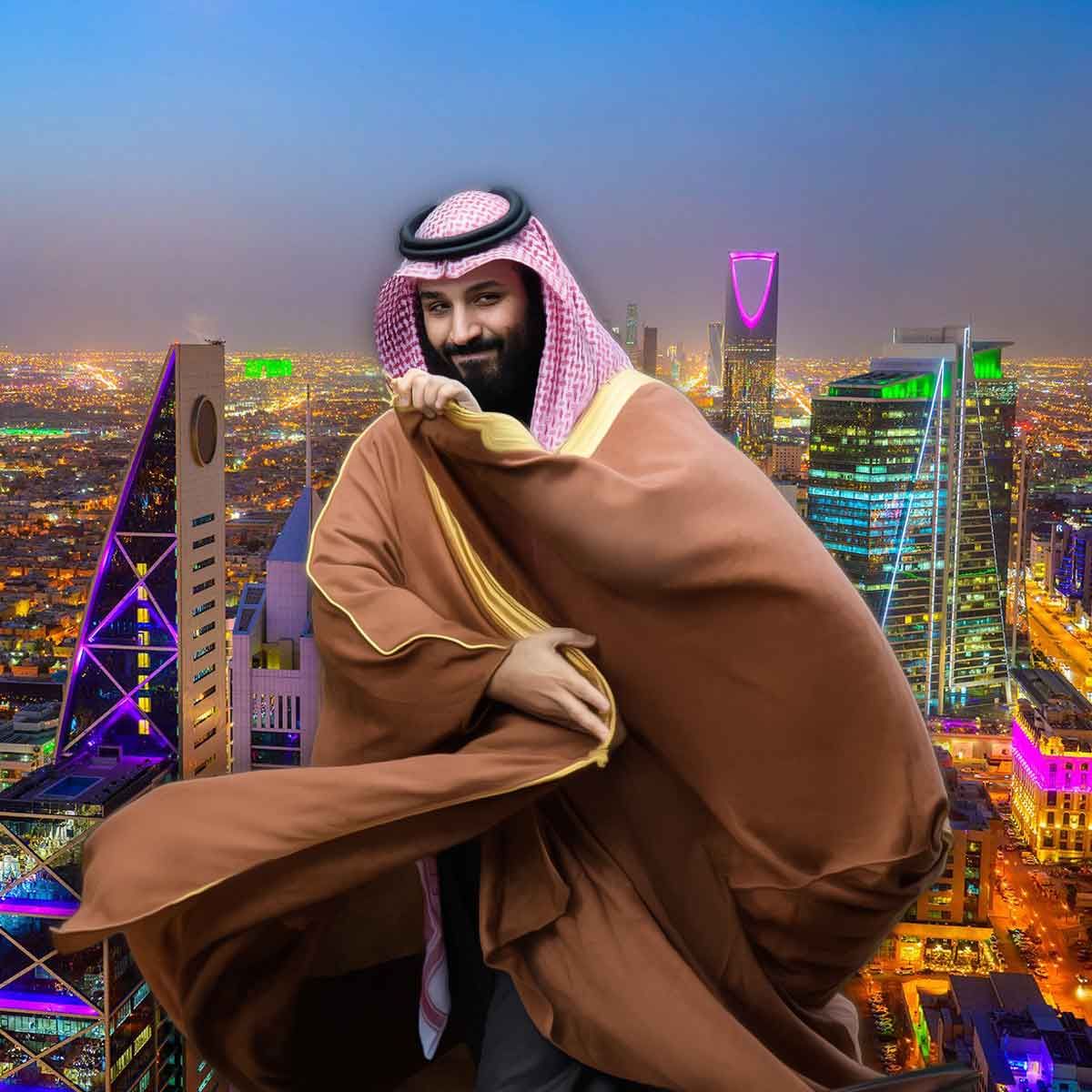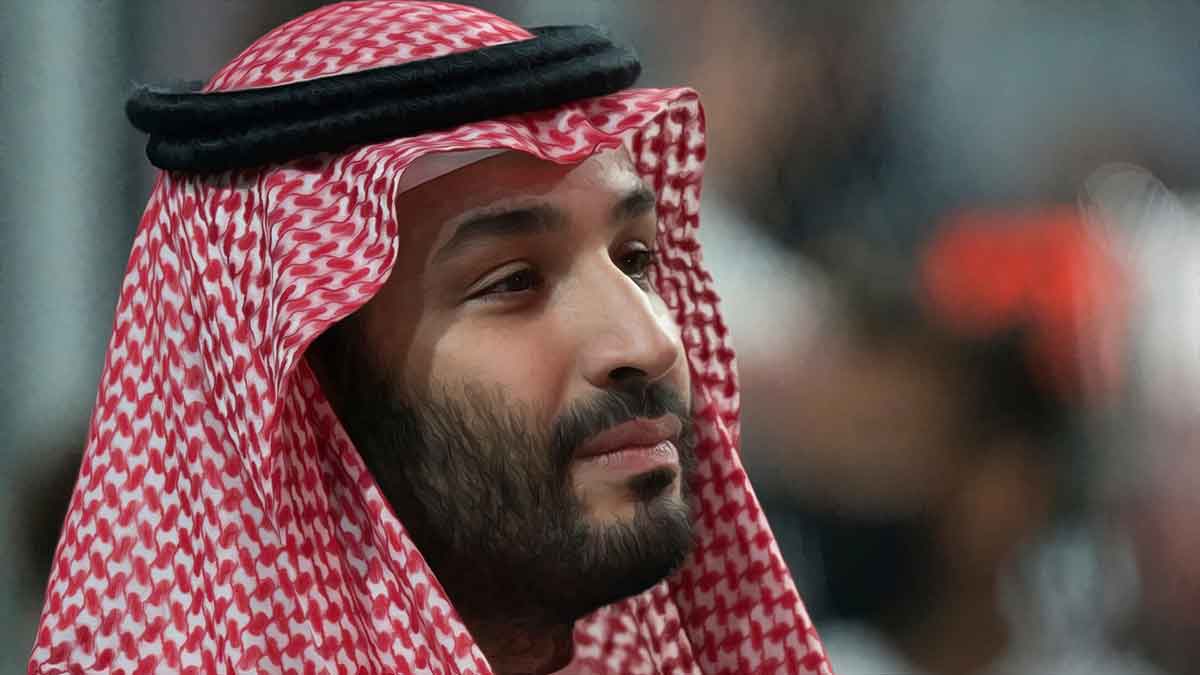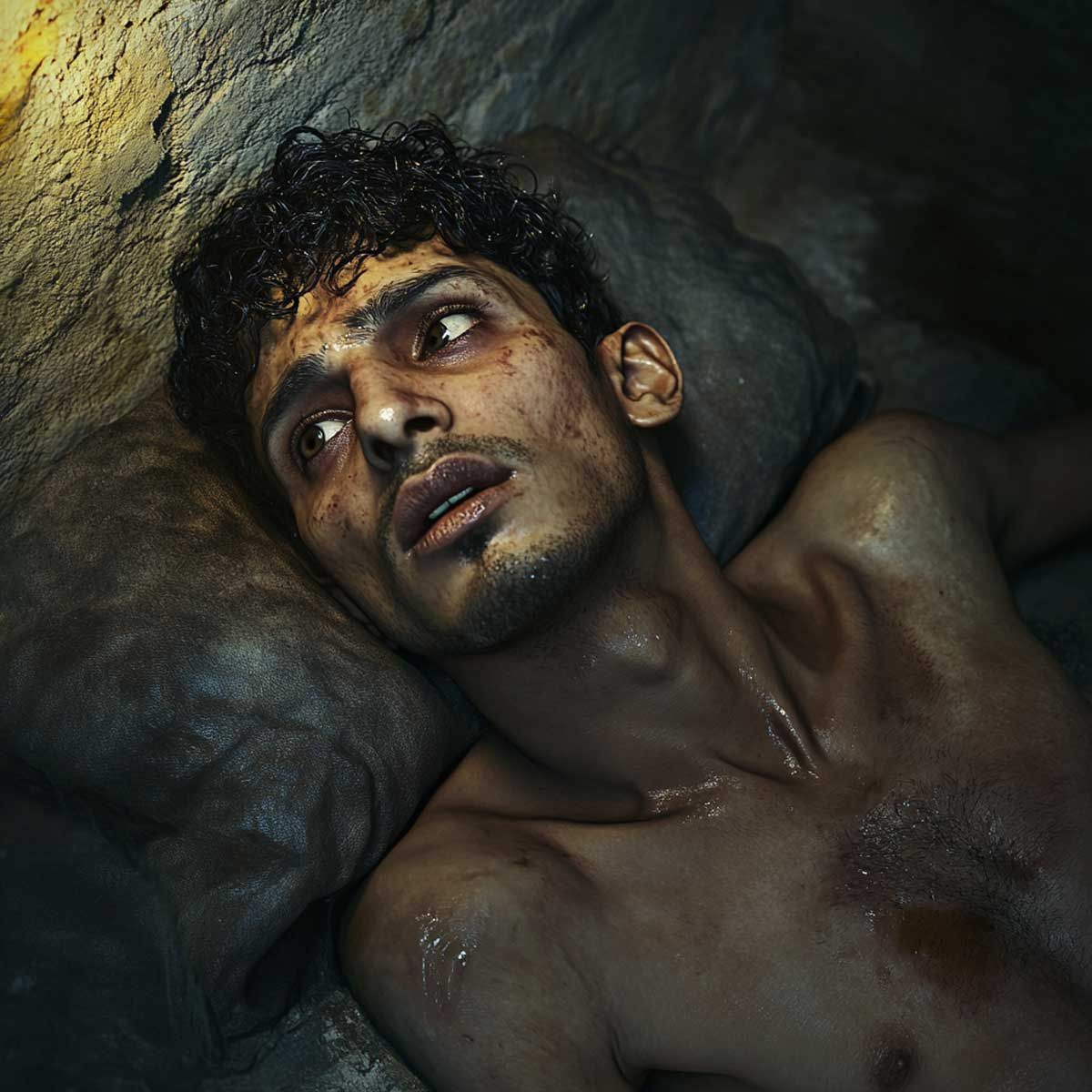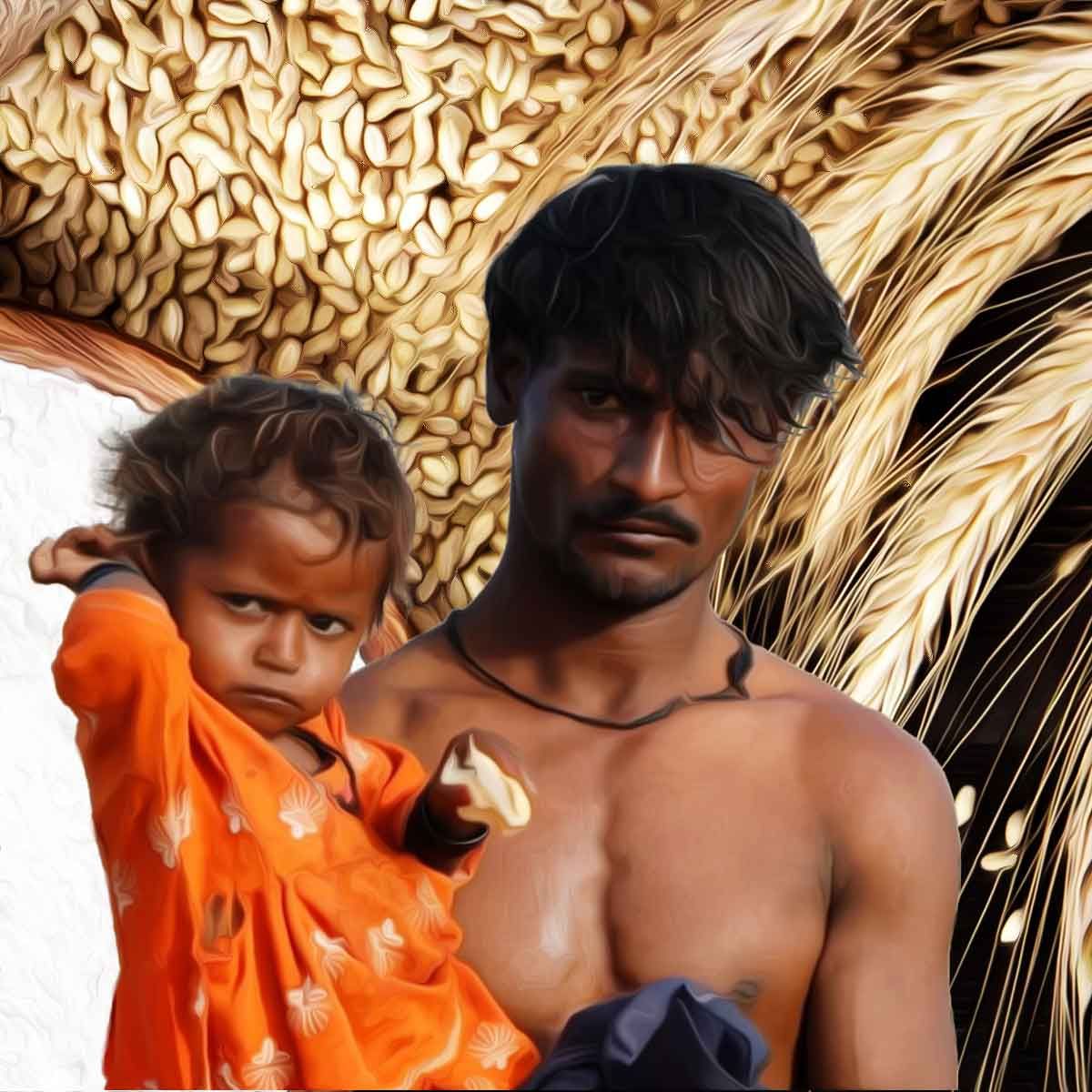MORE COVERAGE
Twitter Coverage
Satyaagrah
Written on
Satyaagrah
Written on
Satyaagrah
Written on
Satyaagrah
Written on
Satyaagrah
Written on
JOIN SATYAAGRAH SOCIAL MEDIA
In a historic shift, Prince Mohammad Bin Salman prohibits Iftar gatherings in mosques and stops Imams from fundraising for Ramadan feasts in Saudi Arabia, signaling a major drift in traditional practices as per Ministry of Islamic Affairs' new guidelines

Saudi Arabia is undergoing a transformation like never before, with Crown Prince Mohammed bin Salman at the helm of sweeping cultural and societal reforms. In a bold move that underscores this transformative agenda, the Crown Prince has introduced measures that pivot from traditional Islamic practices towards a new narrative focused on Saudi nationalism, the country's rich history, and the royal family's legacy.
|
In anticipation of Ramadan 2024, a significant change has been announced: the hosting of Iftar within mosques across the kingdom is now prohibited. This directive was issued on February 20, 2024, by the Ministry of Islamic Affairs, which provided detailed guidelines to mosque employees for the upcoming holy month.
Further tightening these new regulations, the Ministry has also forbidden imams and muezzins in various regions from collecting financial donations for the organization of Iftar meals. This initiative aims to support both those observing the fast and others within the community. The directive explicitly states, "...Imams and muezzins in various regions of the Kingdom not to collect financial donations for Iftar projects for fasting people and others," marking a clear stance on the collection of funds for Iftar.
Alongside the ban on fundraising for Iftar meals, the Ministry of Islamic Affairs has also introduced a prohibition on organizing Iftar feasts inside mosque premises, citing cleanliness concerns. This decision reflects the broader strategic vision of Crown Prince Mohammed bin Salman to modernize the Kingdom's practices while maintaining respect for its traditions and cultural values.
In the latest guidelines issued by the Saudi Ministry of Islamic Affairs, a significant shift in Ramadan practices reflects Crown Prince Mohammed Bin Salman's broader strategy to moderate the Kingdom's religious customs. The Ministry's directive to move Iftar gatherings outside mosques into courtyards, avoiding temporary structures, is a clear move towards ensuring cleanliness while also subtly transforming traditional religious practices. The statement emphasizes, "Iftar projects should not be held inside mosques due to concerns about cleanliness, so an appropriate place should be prepared in the mosques’ courtyards without the use of temporary rooms, tents, or the like, and that Iftar should be under the imam’s and muezzin’s responsibility, with the obligation of the one who breaks the fast to clean the place immediately after finishing food." This approach not only addresses practical concerns but also fosters a sense of community responsibility and engagement in a more open and less formal setting.
|
Additionally, the Ministry's stance on prohibiting the use of cameras to record prayers within mosques underscores a commitment to maintaining the sanctity and reverence of worship, free from the distractions of modern technology. This decision to keep worship private and not for broadcast reflects a nuanced approach to respecting religious practices while navigating the challenges posed by social media and digital exposure.
The anticipated start of Ramadan 2024 on March 11, with the traditional moon sighting over Mecca, marks a period of reflection and renewal for Muslims. The end of this holy month is expected on April 9, 2024, maintaining the continuity of Islamic traditions amidst the backdrop of evolving policies.
Since his appointment in June 2017, Crown Prince Mohammed Bin Salman has been at the forefront of introducing reforms aimed at reducing the ultra-conservative influence of Islam within Saudi Arabia, signaling a shift towards a more moderate and globally engaged society. An example of this transformative vision was the lifting of the ban on music performances in October 2017, a move that has significantly contributed to the cultural vibrancy and openness of Saudi society.
Continuing the transformative journey of Saudi Arabia under the leadership of Crown Prince Mohammed Bin Salman (MBS), the country has witnessed groundbreaking reforms aimed at moderating its society and opening up to the world. In April 2018, a historic step was taken to reintegrate global cultural influences into the Saudi fabric by reopening movie theaters after a 35-year hiatus. The screening of "Black Panther" as the first movie marked a significant moment, symbolizing the kingdom's readiness to embrace global entertainment and cultural diversity.
June 2018 saw another monumental reform with the lifting of the ban on women driving, a unique prohibition that had previously curtailed women's independence and mobility in the country. This change not only granted women greater autonomy but also signaled a shift towards gender equality, albeit acknowledging that the journey towards full equality is ongoing.
The year 2019 marked further progress in empowering women when Saudi authorities allowed women aged 21 and over to apply for passports and travel abroad without the need for a male guardian's permission. This easing of the guardianship system, which had given men almost complete control over women's lives, represented a significant move towards gender parity and personal freedom for women in Saudi society.
At the core of these social reforms is Prince MBS's ambitious "Vision 2030," launched in 2016. This blueprint for the future aims to diversify the Saudi economy, lessen its dependence on oil, and foster social change. Through Vision 2030, Prince Salman is not just reshaping the economic landscape of the kingdom but is also promoting a more moderate and inclusive approach to governance and societal norms. This vision encapsulates the Crown Prince's efforts to balance the kingdom's deep-rooted Islamic traditions with the demands and opportunities of the modern world, steering Saudi Arabia towards a future marked by innovation, sustainability, and openness.
|
|
Why Saudi Arabia's New Ramadan Rules Sparked Controversy Among Muslims: Understanding the Restrictions
In an ambitious move to reshape the Kingdom's identity and make it more appealing to international audiences, Saudi Arabia has introduced new regulations for the upcoming Ramadan, sparking debate among the global Muslim community. Critics argue that these changes, which include promoting musical events and inviting famous Western artists, signify a deliberate effort by the Saudi leadership to diminish the role of Islam in public life. This strategy is part of a broader initiative to open up Saudi society and culture to the world.
The Ministry of Islamic Affairs in Saudi Arabia has set forth a series of new guidelines for its citizens during Ramadan, which have not been warmly received by Muslims around the globe. Analyst Sami Hamdi suggests that these latest measures are indicative of Saudi Arabia's shift towards crafting a new national identity, one where Islam is not the central element. In a commentary shared on Twitter, Hamdi points out, "MBS (Mohammed bin Salman) is pushing Islam out of public life," highlighting a significant pivot in the Kingdom's approach to its traditional religious practices.
These developments are part of Crown Prince Mohammed bin Salman's vision to modernize Saudi Arabia and foster a more moderate interpretation of Islam that aligns with global norms and attracts a broader international audience. This vision seeks to balance the Kingdom's rich Islamic heritage with the demands of a rapidly changing world, promoting social and economic reforms that aim to diversify the country's economy and enhance its global standing.
|
Navigating New Norms: Saudi Arabia's Ramadan Regulations Aimed at Moderation
In a series of groundbreaking moves, Saudi Arabia has laid out new guidelines for the holy month of Ramadan, indicating a significant shift towards moderation and a reduced emphasis on traditional Islamic practices. These changes are part of Crown Prince Mohammed bin Salman's broader efforts to transform the Kingdom into a more open and moderate society. Here’s a breakdown of what’s changing and why:
- Financial contributions directly to mosques are now prohibited, reflecting a push towards greater regulation of religious donations.
- The tradition of after-sunset Iftar meals in mosques has been banned, encouraging the community to find alternative spaces for communal gatherings.
- Prayer times are to be kept concise, aiming to streamline religious observances.
- Children will no longer participate in mosque prayers, a move likely aimed at focusing worship practices.
- Identification documents are now a requirement for worshippers, enhancing security and organization within religious spaces.
- In cities other than Mecca and Medina, prayer broadcasts are to be limited in volume, and external broadcasts are restricted, likely to minimize noise pollution and respect diverse community preferences.
- The duration of prayers is not to be extended, ensuring that religious practices are consistent and manageable for all participants.
- The use of cameras in mosques is restricted, especially regarding capturing images of the imam or worshippers, to maintain the solemnity of prayer times.
- No fundraising for feeding the fasting, indicating a shift towards centralized and regulated charity efforts.
- Designated areas must be used for feeding the fasting, with a strict cleanup policy, ensuring cleanliness and order.
- Temporary structures for Iftar within mosque premises are not allowed, further emphasizing the need for cleanliness and organization.
- Iftar meals inside mosques are now banned, directing these communal activities outside sacred spaces.
- Observing Itikaf requires identification, streamlining the management of this practice.
This comprehensive list of restrictions underscores a "attempt to reduce the influence of Islam" in public life, aiming to modernize the Kingdom's approach to religion and society. By introducing these rules, Saudi Arabia is gradually promoting cultural events and inviting international artists, signaling a major shift towards creating a more inclusive and globally connected society. Critics argue that these measures dilute the Islamic character of the Kingdom, but proponents see them as necessary steps towards a more balanced and open Saudi Arabia.
|
Mohammed bin Salman Rewrites History to Shrink Saudi Arabia's Islamic Past
In 2022, Saudi Arabia introduced Founding Day, celebrating the year 1727 as the nation's origin. This new holiday shifts focus from the traditional date of 1744, which marked an alliance with the preacher Muhammed ibn Abdul-Wahhab, whose teachings formed the basis of Wahhabism. This move by Crown Prince Mohammed bin Salman and King Salman represents a significant departure from emphasizing Wahhabism as the state's foundational ideology.
The selection of 1727 highlights the Al Saud clan's military conquest, rather than the religious alliance of 1744, indicating a broader effort to diminish the strict Islamic narrative that has dominated Saudi history. Since Mohammed bin Salman became crown prince, significant reforms have unfolded, including diminishing the power of the religious police in 2016, and advancing women's rights and social freedoms.
These steps are part of a strategy to modernize Saudi Arabia, moving towards a more moderate and inclusive society, while also paying homage to its pre-Islamic heritage. This recalibration of history and policy underlines a commitment to reducing the influence of conservative Islam in public life, signaling a new era for the kingdom.
Saudi Arabia is shifting towards a "Saudi-first" perspective that prioritizes the nation's own interests over broader Islamic concerns, similar to trends in other countries. This change is part of Prince Mohammed's efforts to focus on national advancements.
The move away from religious dominance is crucial for Saudi Arabia's transformation into an economy less reliant on oil. This transformation requires Saudis to become more economically active, which necessitates increased freedoms, notably for women, who are now encouraged to work, drive, and have more independence.
In an effort to diversify its economy, Saudi Arabia is focusing on boosting its tourism and entertainment sectors to become the second-largest after oil. This includes promoting tourism within the country to keep Saudi money at home and attracting international tourists with more secular attractions. There's even talk about potentially allowing alcohol in some places to support this goal.
Religious conservatives, who once had significant control over social norms, are finding these changes difficult to accept. Their influence has been significantly reduced, and their role in defining the nation's identity is being quickly erased, as seen in the introduction of Founding Day and the reevaluation of Saudi history.
The push to modernize and diversify the Saudi economy and society involves reducing the role of religion, accompanied by tighter political control. This delicate balancing act aims to maintain stability while pursuing ambitious reforms.
History shows that such major changes, particularly when led by monarchs in traditional societies, can sometimes trigger uncontrollable dynamics. The overthrows of Haile Selassie in Ethiopia and the Shah of Iran serve as cautionary examples of the potential risks associated with rapid transformations.
To mitigate the risk of political backlash, King Salman and Crown Prince Mohammed bin Salman (MBS) have taken steps to centralize control and forcefully suppress any opposition. This approach has significantly altered the traditional power dynamics within Saudi Arabia, moving away from the decentralized authority that characterized the kingdom and other Gulf Arab monarchies, where power was spread across various branches of the royal family. Now, power is tightly held by the king, the crown prince, and a select group of officials and advisors.
This consolidation of power has been marked by significant political repression, as seen in events such as the Ritz-Carlton detentions of wealthy and influential Saudis, the 2018 assassination of journalist Jamal Khashoggi at the Saudi consulate in Istanbul, and the arrest and mistreatment of advocates for women's and human rights. These actions have fostered a climate of fear, especially among the elite who thrived under the previous regime and might be most opposed to the changes being implemented.
According to Saudi political scientist Sultan Alamer, the shift towards a new Saudi nationalist narrative under MBS is more socially inclusive compared to the traditional Wahhabi narrative but comes with increased political authoritarianism. This reflects MBS's ambitious bet: to drastically modernize Saudi Arabia's culture and economy while maintaining control by centralizing power. This strategy is considered one of the most daring and risky political endeavors globally.
 |
 Support Us
Support Us
Satyagraha was born from the heart of our land, with an undying aim to unveil the true essence of Bharat. It seeks to illuminate the hidden tales of our valiant freedom fighters and the rich chronicles that haven't yet sung their complete melody in the mainstream.
While platforms like NDTV and 'The Wire' effortlessly garner funds under the banner of safeguarding democracy, we at Satyagraha walk a different path. Our strength and resonance come from you. In this journey to weave a stronger Bharat, every little contribution amplifies our voice. Let's come together, contribute as you can, and champion the true spirit of our nation.
 |  |  |
| ICICI Bank of Satyaagrah | Razorpay Bank of Satyaagrah | PayPal Bank of Satyaagrah - For International Payments |
If all above doesn't work, then try the LINK below:
Please share the article on other platforms
DISCLAIMER: The author is solely responsible for the views expressed in this article. The author carries the responsibility for citing and/or licensing of images utilized within the text. The website also frequently uses non-commercial images for representational purposes only in line with the article. We are not responsible for the authenticity of such images. If some images have a copyright issue, we request the person/entity to contact us at This email address is being protected from spambots. You need JavaScript enabled to view it. and we will take the necessary actions to resolve the issue.
Related Articles
- "Mommy!!! Kamala!!! Buhuhu, ye jhooth bol raha hai": US President Biden accused MoS Adel al-Jubeir of lying after he denied any discussion of murder of Saudi journalist Jamal Khashoggi in meeting with Crown Prince Mohammed bin Salman
- "Mecca's Resolve: Preserving Purity" - Saudi Arabia escalates its crackdown in Mecca and Medina, escorting Muslims to off-site locations; they're interrogated for activism about Palestine and Gaza, starkly portraying the cost of activism in sacred spaces
- In a bold stride towards unprecedented growth, India and Saudi Arabia set sights on a staggering $200 billion trade target, heralding a new age of economic partnership and space collaboration, cementing bonds and fostering mutual prosperity
- “To improve is to change; to be perfect is to change often”: No more 'monkeys' and 'pigs' - Anti-Israeli content has been removed from textbooks in Saudi Arabia, Revolution by Saudi Crown Prince Mohammed bin Salman is reflected in the education system
- "Dissidents in Saudi Arabia, Israel and India are languishing in Jails and USA is the biggest ally of these tyrants": Elle India publisher Arif Ayyub suffers a meltdown, wants Muslim nations to join military forces against Saudi, UAE and attack Israel
- Independent investigative journalism page ‘The Hawk Eye’ reveals professional propaganda and social media campaign by Turkey-based organisation for Twitter storm over anti-India remarks alleging blasphemy against Prophet Muhammad
- "दे रे ना बाबा": Saudi Arabia has issued a stern warning to Pakistan, threatening bilateral ties as beggars flood the Kingdom under Umrah visas, prompting Pakistan to enact the Umrah Act and launch a nationwide crackdown on the beggar mafia
- After being slammed by Indians for fake news, Rana Ayyub is now being blasted by Saudis for supporting terrorists in her tweet "Yemen is bleeding and there is nobody to stop the bloodthirsty Saudis”
- Facing an economic crisis Nationalist Pakistanis are loathing Saudi Arabia, and they have solutions for all the obstacles: Nukes and opium
- "Aur kab tak - Golden Via Kochi Horror Saga": Ajumon and Majeed deceptively sold and transported two Kerala women Rekha and Usha to Arab families in Kuwait, where they were locked up, abused, starved, tortured, and physically assaulted, finally rescued

























